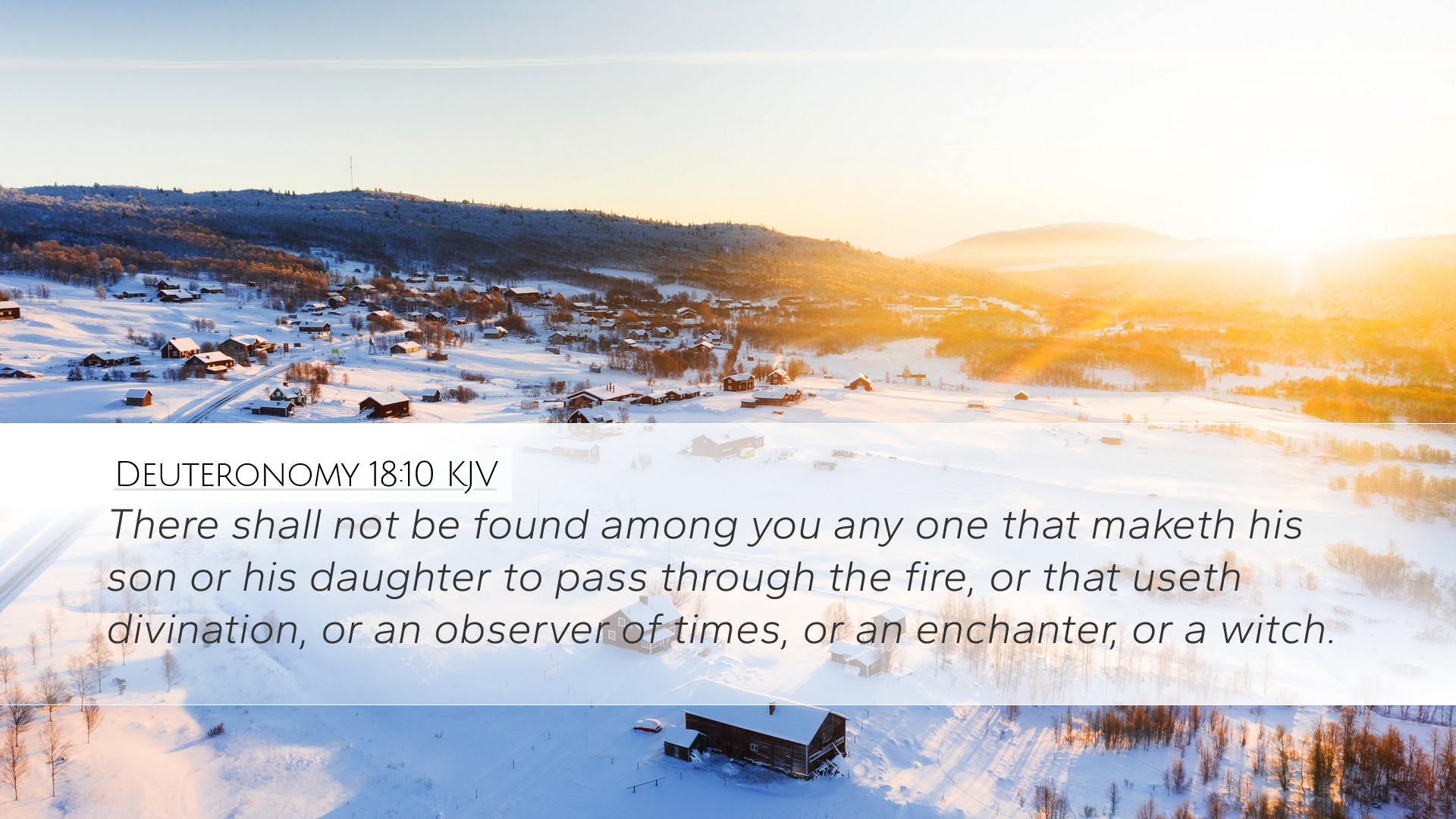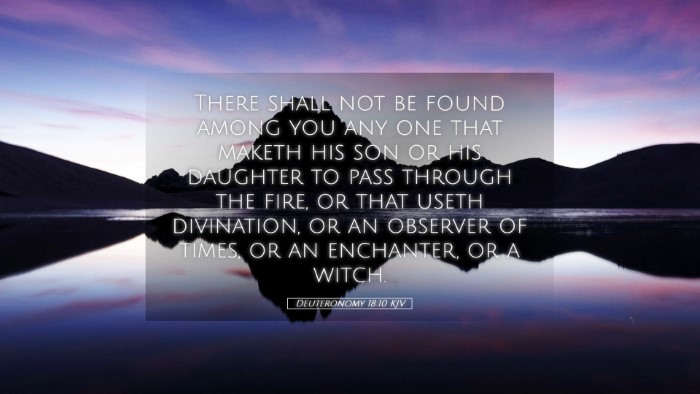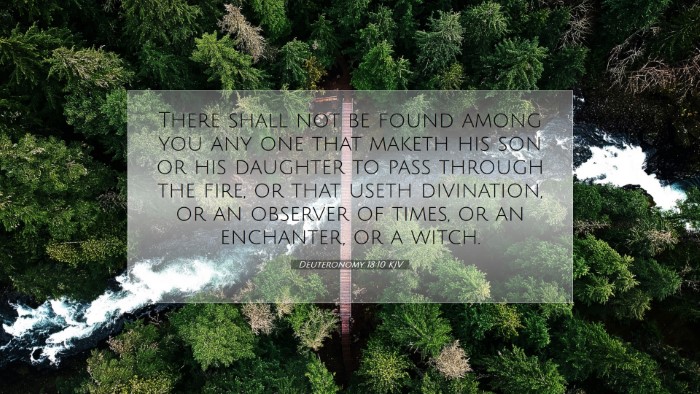Commentary on Deuteronomy 18:10
Deuteronomy 18:10 states: "There shall not be found among you any one that maketh his son or his daughter to pass through the fire, or that useth divination, or an observer of times, or an enchanter, or a witch." This verse is significant in understanding the broader context of Israel's relationship with God and the surrounding nations.
Historical Context
The context of Deuteronomy is crucial for understanding this command. As the Israelites prepared to enter the Promised Land, Moses delivered these laws to differentiate them from the pagan practices of the nations around them. The command against child sacrifice and various forms of divination reflects God's desire for His people to maintain purity and faithfulness in worship.
Insights from Matthew Henry
Matthew Henry emphasizes the gravity of the practices mentioned in this verse, noting that child sacrifice was abhorrent to God. He explains:
- Child Sacrifice: Henry points out that passing children through the fire, a reference to the worship of Molech, symbolized the ultimate betrayal of parental duty and the sacredness of life.
- Divination and Witchcraft: He condemns superstitions and occult practices, urging the Israelites to rely on God rather than forbidden arts.
- Separation from Paganism: Henry underscores the importance of separating from these practices as a means of preserving one’s faith and integrity.
Insights from Albert Barnes
Albert Barnes elaborates further on each of the forbidden practices:
- Child Sacrifice: He notes that this was a form of offering to pagan deities, an act that directly violated the covenant between God and His people.
- Divination: Barnes defines divination as seeking knowledge through supernatural means, which distracts from a direct relationship with God.
- Consulting the Dead: He emphasizes that turning to mediums or spiritists undermines trust in God's sovereignty and guidance.
Insights from Adam Clarke
Adam Clarke offers a theological critique of the practices mentioned:
- The Consequences of Idolatry: Clarke argues that the acts condemned in this verse lead to societal decay and spiritual desolation.
- God's Holiness: He highlights the holiness of God and His intolerance for any practices that compromise worship and morality.
- The Dangers of Occultism: Clarke warns against the allure of these practices, which can ensnare individuals and lead them away from God’s truth.
Theological Implications
As we consider the theological implications of this verse, several themes arise:
- The Sanctity of Life: Child sacrifice underscores a disregard for life that is fundamentally opposed to God's commandments.
- Faithfulness to God: The Israelite’s need to resist the temptations of surrounding cultures is a call for contemporary believers to stay true to God amidst a secular world.
- Purity in Worship: The insistence on pure worship devoid of pagan influences is a significant theme throughout the Old Testament, emphasizing the need for sincerity in approaching God.
Practical Applications for Today
The adherents of the faith, whether pastors, students, theologians, or scholars, can gather several practical applications from Deuteronomy 18:10:
- Awareness of Compromising Practices: Today’s believers should be vigilant against the creeping influence of secularism and occultism in various forms.
- Promoting the Sanctity of Life: The commitment to life should reflect through advocacy against abortion and any practices that devalue human existence.
- Establishing Firm Foundations in God's Word: Encouraging a return to scripture as the source of guidance as opposed to the spirit of the age.
Conclusion
Deuteronomy 18:10 serves as a foundational text for understanding the serious nature of worship and the relationship between the people of God and the practices of the nations around them. The insights drawn from the commentaries of Matthew Henry, Albert Barnes, and Adam Clarke, as well as the practical applications for contemporary believers, highlight the timelessness of God's call to purity and faithfulness.


